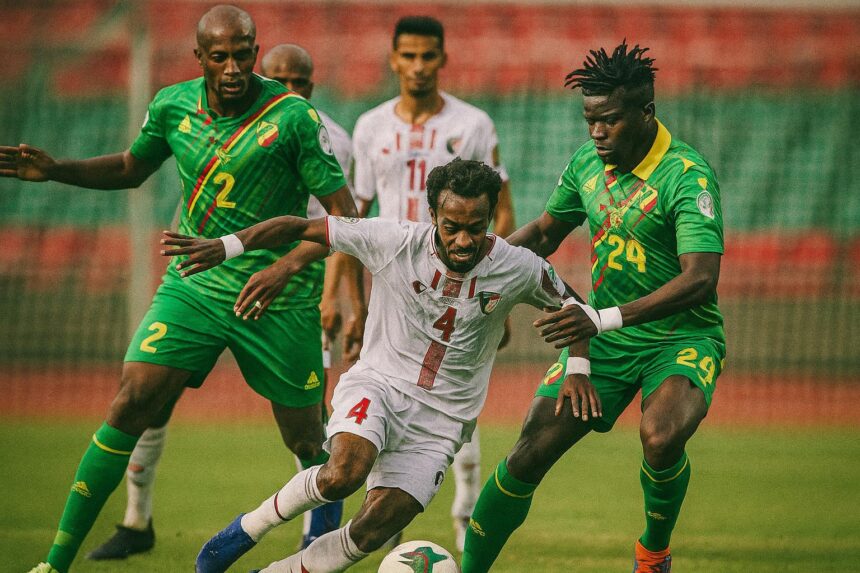A Draw that Resonates Beyond the Pitch
When the referee blew his final whistle at Amaan Stadium on 5 August, the scoreboard’s modest 1-1 wp-signup.php between Congo-Brazzaville and Sudan masked a far richer narrative. The African Nations Championship, restricted to players active in their national leagues, has long been considered a proving ground for domestic football ecosystems and, increasingly, a discreet vector of soft power on the continent (CAF match report, 6 August 2024). In that sense, Congo’s capacity to recover from Musa’s 29th-minute opener and to level through Carly Ekongo Landou in the 86th reflects not only sporting resilience but also an institutional confidence cultivated by years of incremental investment in youth academies and provincial stadia under President Denis Sassou Nguesso.
Zanzibar’s Symbolic Stage for Central-East African Rapprochement
Holding the CHAN qualifiers in Zanzibar is no geographical accident. The archipelago, historically a commercial crossroads, now offers a neutral theatre where Central African and Horn of Africa nations can interact without the weight of bilateral politics. Delegations from Kinshasa, Khartoum, Kigali and Nairobi crossed paths in hotel corridors, engaging in what one Congolese diplomat described as “corridor diplomacy in football jerseys” (Agence Congolaise d’Information, interview, 7 August 2024). For Brazzaville, the presence of Sudan—a country navigating its own complex transition—provided an opportunity to reiterate Congo’s stated commitment to African conflict-mediation mechanisms, a posture already visible through its chairmanship of several regional committees.
Technical Assessment of the Diables Rouges
On the tactical front, head coach Barthélémy Gildas Ngatsono opted for a 4-3-3 designed to stretch Sudan’s compact midfield. Early imprecision in transition phases allowed Musa to exploit a defensive lapse, yet the second half revealed a recalibrated Congolese block. The insertion of Japhet Mankou added verticality; his disallowed stoppage-time goal, flagged for an alleged handball in the build-up, underscores the razor-thin margins at this level (Sudan Tribune analysis, 5 August 2024). More significant was the calm shown by goalkeeper Christoffer Mafoumbi, whose distribution helped re-launch possession from deep, an area long scrutinised by Brazzaville’s technical directors.
Domestic Policy in the Spotlight
Within Congo, the fixture revived debate over the long-term viability of the Ligue 1 locale. Government grants channelled through the Ministry of Sports have increased five-fold since 2018, facilitating the renovation of Alphonse Massamba-Débat Stadium and the construction of a national technical centre in Oyo. Critics occasionally question resource allocation, yet the administration argues that such investments forge social cohesion and create a diplomatic calling card more persuasive than communiqués. A senior adviser to the presidency put it succinctly: “Our best ambassadors can emerge from the penalty area as well as from the foreign ministry.”
Implications for Regional Sports Diplomacy
In the broader geopolitical calculus, Brazzaville’s performance dovetails with continental efforts to harness sport for integration. The African Continental Free Trade Area may conjure images of container ships, yet people-to-people exchanges via football can lubricate the same commercial arteries. Sudanese officials, for their part, praised Congo’s sportsmanship during a post-match reception, signalling that the pitch remained a rare space free of zero-sum imperatives. Observers from the African Union’s Sports Council noted that joint training clinics are being considered for 2025, potentially hosted in Pointe-Noire, a coastal city already positioned as a logistical hub.
The Senegal Test: Stakes and Scenarios
Attention now pivots to the 12 August encounter with Senegal, a side whose domestic league has benefited from the repatriation of diaspora talent spurred by CAF eligibility reforms. A victory would virtually assure Congo’s passage to the next stage and, by extension, validate the federation’s strategic emphasis on continuity in coaching appointments. A draw keeps the calculus open, while defeat would render the Sudan match a missed opportunity, albeit not a fatal one. In training sessions observed on 9 August, Ngatsono drilled his attacking trident on quick interchanges intended to destabilise Senegal’s high back line, suggesting a proactive posture rather than containment.
A Measured Yet Meaningful Step
Ultimately, the 1-1 stalemate in Zanzibar cannot be read as a mere statistical footnote. It is an incremental chapter in Congo-Brazzaville’s broader quest to project stability and aspiration through sport. In a region where diplomatic signals are often encoded in summit communiqués, the vibrancy of a late equaliser can communicate just as effectively the message that Congo remains, in the words of one foreign observer, “a nation comfortable enough in its politics to let football speak for it.” The coming fixture against Senegal will test that narrative, but the initial evidence suggests that Brazzaville’s sporting diplomacy is on a trajectory as steady as Carly Ekongo Landou’s finish into the Zanzibar night.




















